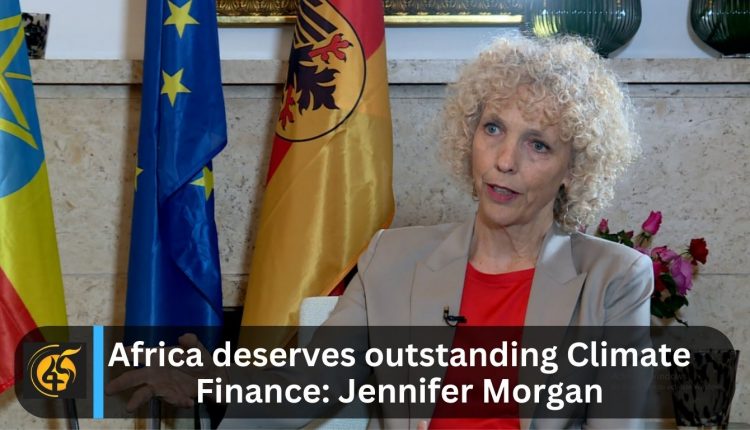Africa deserves outstanding Climate Finance: Jennifer Morgan
Addis Ababa, July 12, 2023 (FBC) – State Secretary and Special Envoy for International Climate Action at the Federal Foreign Office of Germany, Jennifer Lee Morgan, said that Africa, the continent worst hit by the climate crisis with the biggest energy access gap and the highest renewable energy potential needs a proper climate finance.
In an exclusive interview with Fana Broadcasting Corporate, Jennifer Lee Morgan said that with genuine climate finance African countries can curb the impact of climate change by deploying new gardens and crops that are heat and water resistance.
“Africa hasn’t received the type of financial support that is needed in order to leapfrog the mistakes that Germany and other industrialized countries made by going heavily into fossil fuels and now having phase-out” the Special Envoy has stated.
She said that Germany shares African in moving forward to decarbonize its economy through different projects and initiatives to get the leapfrogging.
“Africa has the moment, the opportunity to actually do it very differently and much better, the resources here are tremendous the minerals, renewable solar, Geothermal, the wind capacity and the employment all the capacity and the opportunity”.
According to Climate policy Initiative, determining climate finance needs in developing economies is critical to identify financing gaps and opportunities to guide stakeholders to effectively access, allocate and mobilize climate finance. Such data supports international policy processes, like the determination and implementation of a new collective and quantified goal on climate finance and accelerates action.
The process of estimating needs also helps in assessing the effectiveness of climate finance flows.
51 out of 53 African countries that submitted Nationally determined contributions have provided data on the costs of implementing their NDCs.
Collectively, they represent more than 93% of Africa’s GDP. Based on the data, it will cost around USD 2.8 trillion between 2020 and 2030 to implement Africa’s NDCs.


